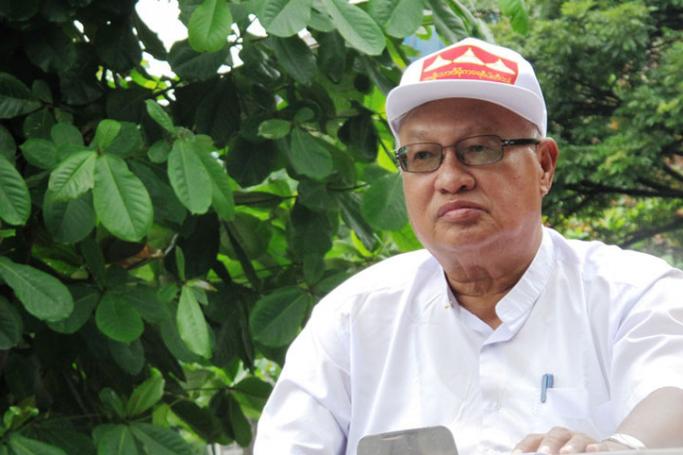On 28 November, the Union Solidarity and Development Party (USDP) and 12 other political parties called for a meeting of the country’s National Defence and Security Council (NDSC) over the government’s handling of the crises in northern Rakhine State and northern Shan State.
The joint declaration signed by the USDP and other smaller political parties noted that the security council (NDSC) should hold a meeting on the situation because the country’s territorial sovereignty is at stake.
The declaration also said in addition to renewed fighting between ethnic armed groups and the Myanmar army in northern Shan state, the recent explosions of three handmade bombs in a Yangon supermarket, rising crime throughout the country, and the stalled national peace process had created a general crisis which forced the military to take action.
Thein Nyunt, chairman of the New National Democracy Party was quoted as saying, ‘All political, economic, and military issues are in crisis.’
The 11-member NDSC, which formulates policy on military and security issues, is dominated by six military officers. The council’s five civilian members include Present Htin Kyaw, Myanmar’s de facto leader Aung San Suu Kyi in her capacity as foreign affairs minister, the civilian vice president, and the speakers of the two houses of parliament.
According to a clause in the 2008 Constitution, in the case of a state of emergency in the country, the president would announce the order in coordination with National Defence and Security Council (NDSC). He would then transfer the government’s executive, legislative, and judicial powers to the Commander-in-Chief of the Defence Forces. In essence, the country would revert back to military rule.
There is little doubt that the NLD-led government is facing serious crises and there is little to suggest that the Government is currently able to address these issues. That said, however, now is not the time for political motivations to be used to bring the military back to the forefront of politics in Myanmar.
The last election saw a resounding success for the NLD and it was given an overwhelming mandate by the people to govern. Of course, no one expected it would be easy, but now is not the time to revert back to the old ways where the military is used to solve every problem in the land. Both the Government and the military must work together in solving the myriad problems the country faces. But, reverting back to military to rule is not the answer for the future of the country.
You are viewing the old site.
Please update your bookmark to https://eng.mizzima.com.
Mizzima Weekly Magazine Issue...
14 December 2023
New UK Burma sanctions welcome...
13 December 2023
Spring Revolution Daily News f...
13 December 2023
Spring Revolution Daily News f...
12 December 2023
Spring Revolution Daily News f...
11 December 2023
Spring Revolution Daily News f...
08 December 2023
Spring Revolution Daily News f...
07 December 2023
Diaspora journalists increasin...
07 December 2023
PPP candidate interested in extracting resources from mountains east of Pyinmana












